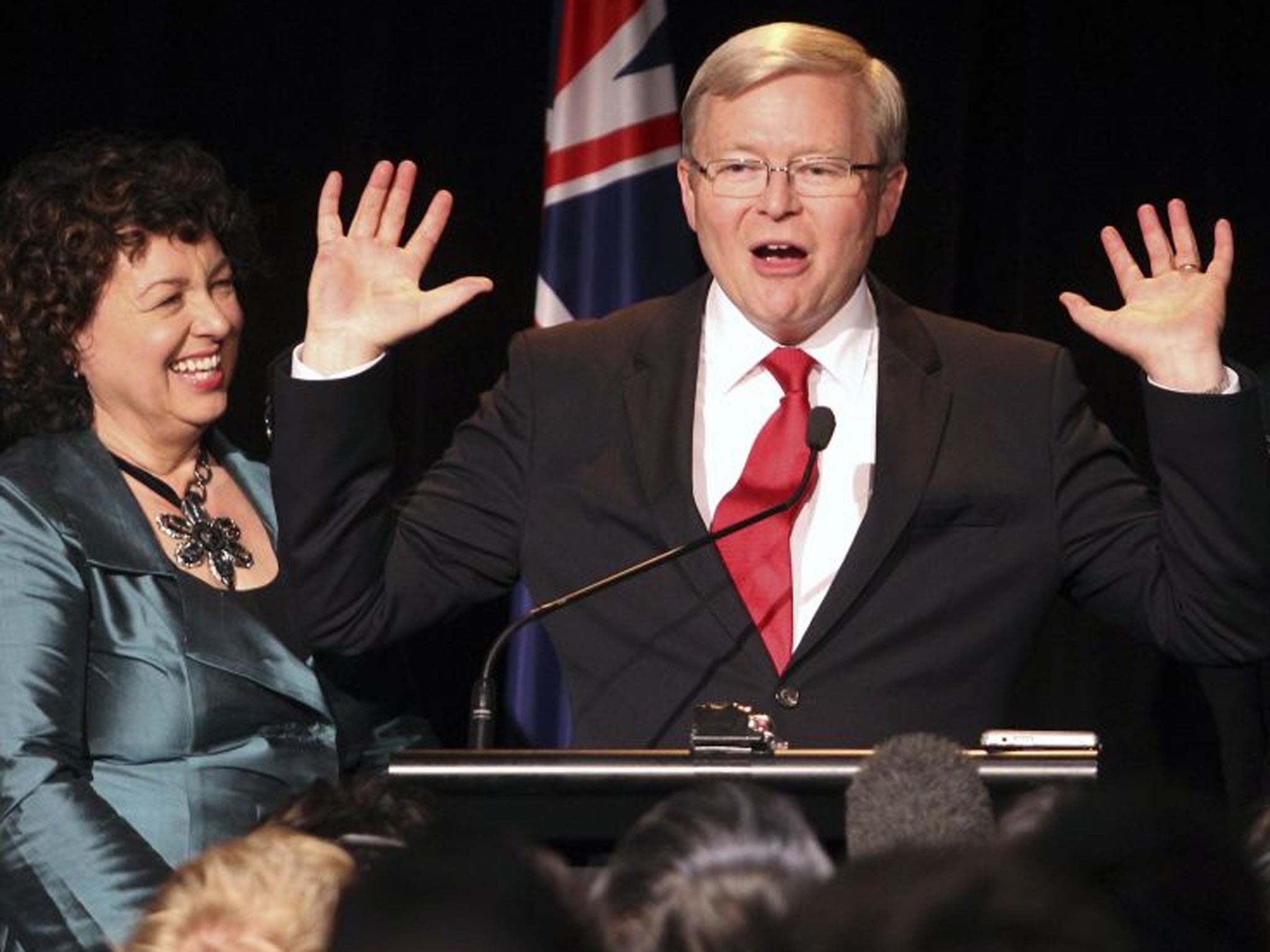Julia Gillard: ‘Grief’ at no longer being Australian PM
Former leader of the Australian Labor Party stated after her defeat that she would leave politics for good

Julia Gillard, who was unceremoniously dumped as the leader of the Australian Labor Party in June, resigning as prime minister the next day, has spoken for the first time of her “acute distress” at losing her position.
Ousted by Kevin Rudd, who went on to lead Labor to defeat in last weekend’s federal election, Ms Gillard said the feelings of loss can still hit her “like a fist”.
“Losing power is felt physically, emotionally, in waves of sensation, in moments of acute distress,” she wrote, adding that reflecting on memories from her time in office or even the kind words of family and colleagues can “bring forth … pain so strong you feel it in your guts, your nerve endings”.
Ms Gillard stated after her defeat that she would leave politics for good. Speaking of the “grieving” she was doing over the end of her career, she wrote: “I know that late at night or at quiet moments in the day feelings of regret, memories that make you shine with pride, a sense of being unfulfilled can overwhelm you. Hours slip by.”
The former politician also revealed that she watched the latest election results come in on her own, as she wanted to “be swept up in it” and continued to find it hard to relax. “I know now that there are the odd moments of relief as the stress [abates] and the hard weight that felt [as if] it was sitting uncomfortably between your shoulder blades slips off. It actually takes you some time to work out what your neck and shoulders are supposed to feel like,” she wrote.
She criticised the timing of Mr Rudd’s leadership challenge. The move, she said, “sent a very clear message that [Labor] cared about nothing other than the prospects of survival of its members of parliament at the polls”. “[The change] was not done because caucus now believed Kevin Rudd had the greater talent for governing,” she said, stating that it sent “a very cynical and shallow message”.
Ms Gillard did not attack Mr Rudd personally, but claimed he felt “constrained” to run on those policies where Labor had “won the national conversation, because those policies were associated with me”. She added that there was “not one truly original new idea to substitute as the lifeblood of the campaign”. She also called some of his policy moves “bizarre”, but praised him over his commitment to a promise on carbon pricing.
She said she hoped Labor will resist media pressure to appoint a new party leader after Mr Rudd stood down in the wake of the election defeat. “Caucus and party members should use this contest to show that Labor has moved on from its leadership being determined on the basis of opinion polls, or the number of positive media profiles, or the amount of time spent schmoozing media owners and editors, or the frippery of selfies and content-less social media”. Ms Gillard called the contest between Bill Shorten and Anthony Albanese as one between “two worthy candidates”, but seemed to take a dig at the leadership process by writing that caucus and party members should “imagine candidates’ policy papers, not leaks; candidates’ debates, not poisonous backgrounding”.
Despite her controversial ousting as Australia’s first female PM, there is huge public interest in her views. Ms Gillard has agreed to two upcoming live-audience interviews at venues in Sydney and Melbourne; their 4,500 tickets were sold out in hours.
A spokesman for Mr Rudd said yesterday: “He told colleagues that he expected free-ranging analysis of his character from a variety of people in the wake of the election. But he made clear he did not believe it was in the interests of the Labor Party and its future for him to respond.’’
Join our commenting forum
Join thought-provoking conversations, follow other Independent readers and see their replies
Comments
Bookmark popover
Removed from bookmarks